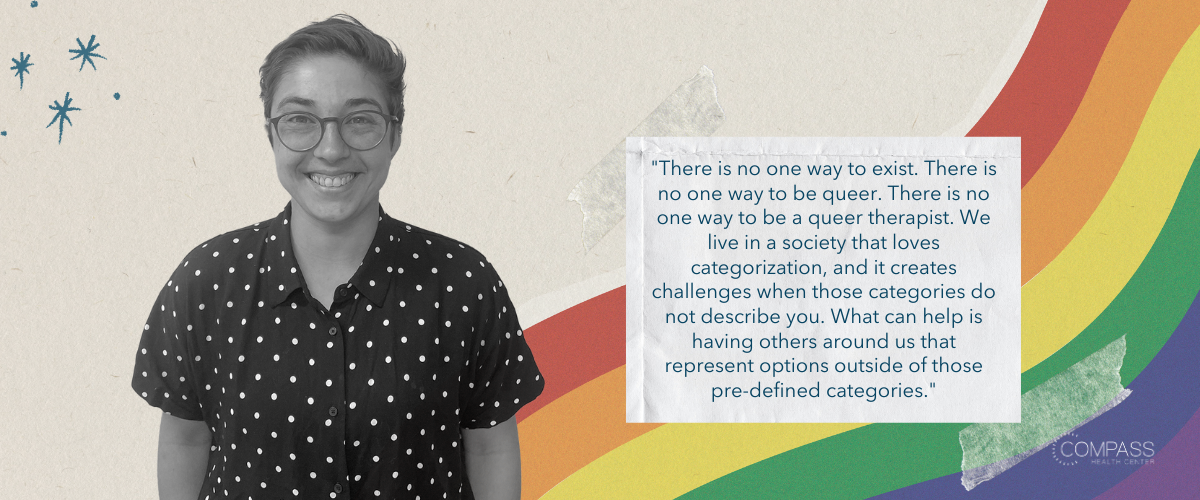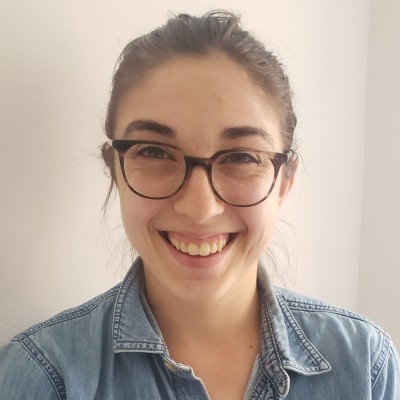This Pride Month, I am finding myself reflecting upon my own queer identity, how it intersects with my clinical role, and how it has led me to where I am now. I have spent 10 years in the social work field, and nearly double that as an out non-binary, queer human. As a teenager, I had limited representation for what being queer could look like; every example in media seemed to lead to rejection, heartbreak, and family turmoil. School dances were limited to strict boy-girl pairs, out adults were fired from their jobs, and our right to marry didn’t exist. No one I knew was queer, or if they were, they were very silent about it. I learned to follow suit. As I entered my late teens, I sought out therapy providers that could understand my experience growing up queer. At the time, there weren’t many around.
My experience isn’t an isolated one. The LGBTQ+ population faces many unique challenges: from societal stressors including laws and policies that determine us less-than, less-worthy, and less safe, family stressors that have us fearing rejection while craving acceptance, and individual stressors of learning how to discover, and then love, our own identities.
There is no one way to exist. There is no one way to be queer. There is no one way to be a queer therapist. We live in a society that loves categorization, and it creates challenges when those categories do not describe you. What can help is having others around us that represent options outside of those pre-defined categories. 
I entered this field to be the representation that my teenaged self needed. As a therapist, I strive to provide an affirming, safe space for individuals to explore aspects of their identity. I am an unavoidably visible pillar of one option of what being a queer adult looks like. It isn’t just that I have short hair and an endless collection of button downs and floral ties; I bring a lived experience of questioning, challenging, and discovering aspects of my identity that many cis and straight people may never be made to think about.
I can educate families and colleagues on the impact of our language, on our history, and on policies that continue to affect us. I can help others be mindful of how we identify our spaces as LGBTQ+ friendly with signs, inclusive bathrooms, and visible pronouns on our walls. I can invite others into conversations they may not normally feel safe to have.
Of course, being out and visible is not always easy. It can be hard to test new environments for safety and acceptance, or to come out to every new person we meet. There is a balance between my own comfort in the visibility of my gender and sexuality and my desire to speak out to create space for everybody. I have spent the majority of my life openly queer, and yet every now and then I catch myself asking all of the questions that follow visibility: “Do I tell people? Do they need to know? Do I talk about my relationships? Do I wear the clothes that match my gender, or do I wear what is expected of me? Do I use my gender-neutral pronouns, or do I use female pronouns and blend in?”
It is in these moments, at these times, that I choose to revisit my values. I want to create space for everyone to be their full authentic selves, to be proud of themselves and the work they are putting in. If I’m not leading by example, then how values-aligned can I truly be?
I now approach my queerness from a place of gratitude. I am grateful that I was afforded opportunities to study what I wished, to access education, to bond with accepting mentors in my field who pushed my career forward. I’m grateful I have supports behind me that help me to be out while I advocate for others. And while some parts of our world make me angry, and sad, and scared, my gratitude for where I am now acts as a powerful source of energy. I am in a position to be visible, to be welcoming, and to shift the norm for those who come next.
Fortunately, I’m not the only one. There is an entire community of LGBTQ+ identified and allied folk here to share in this work. I am grateful for that as well. I don’t feel I have to speak for others, but that I can speak for myself when I choose to and am supported when I do.
.png?width=1200&height=500&name=LGBTQ%20Blog%20(2).png)






